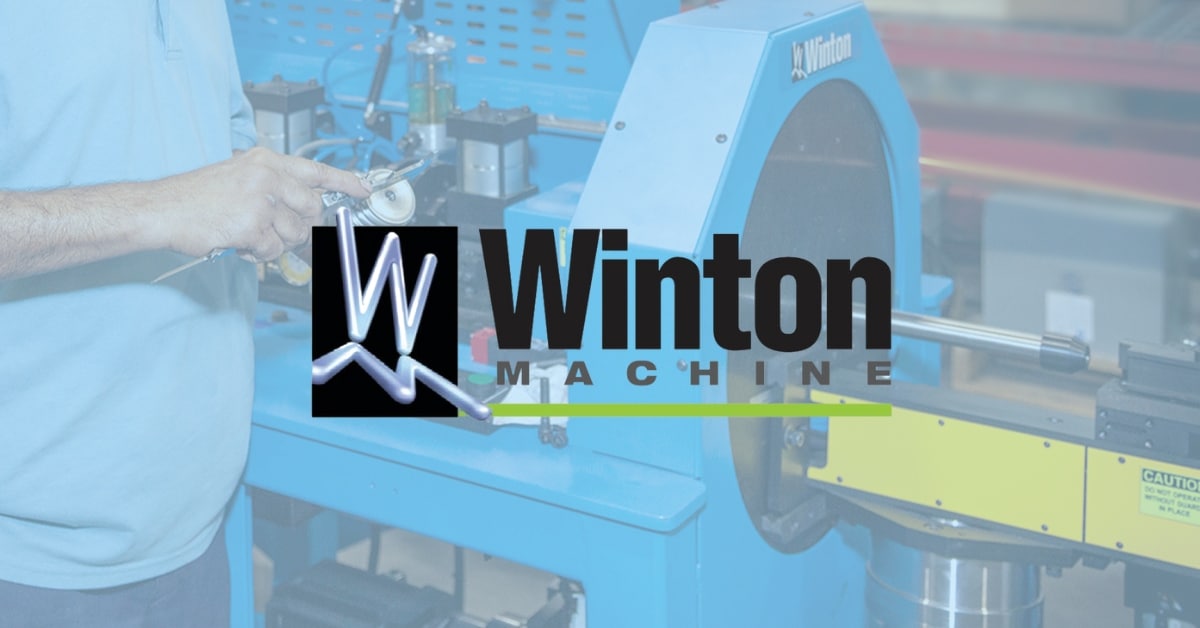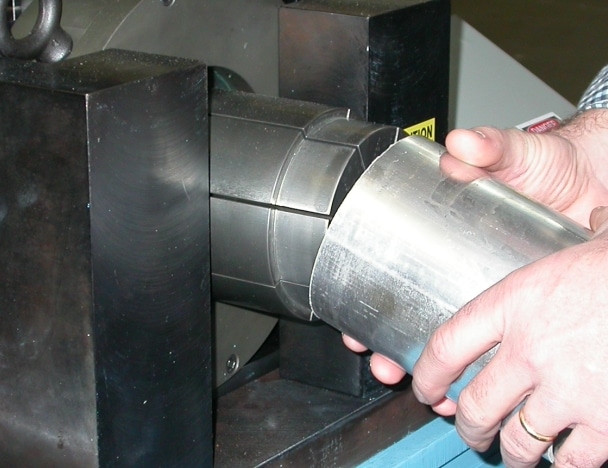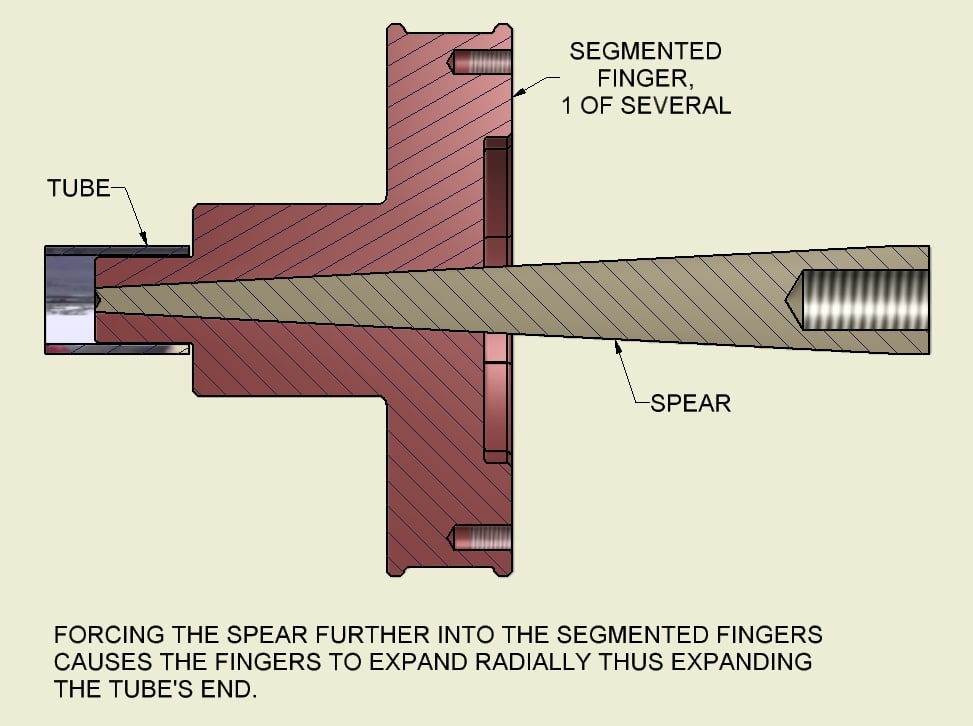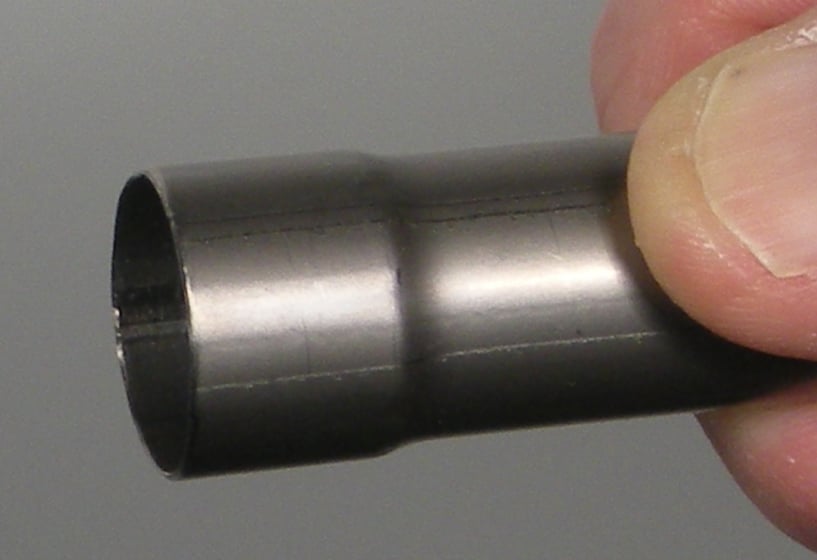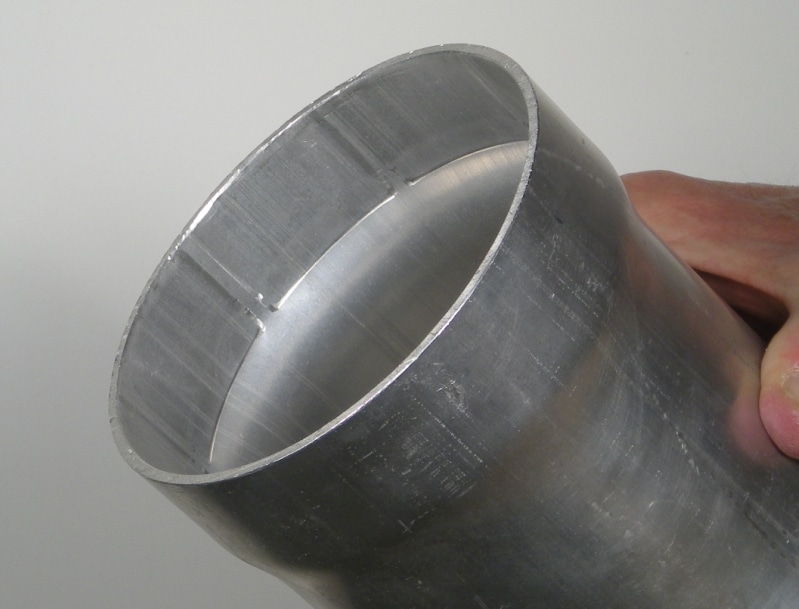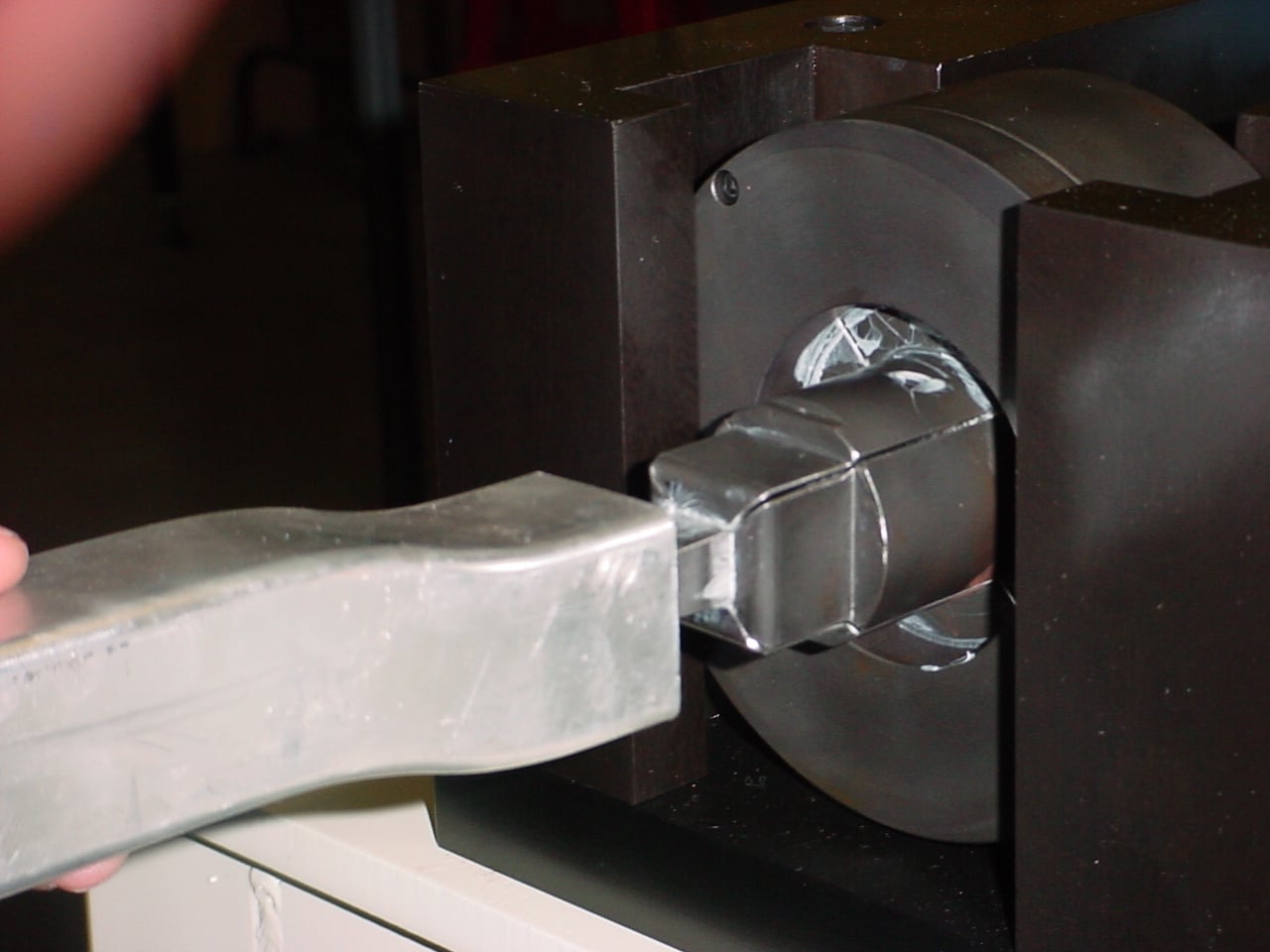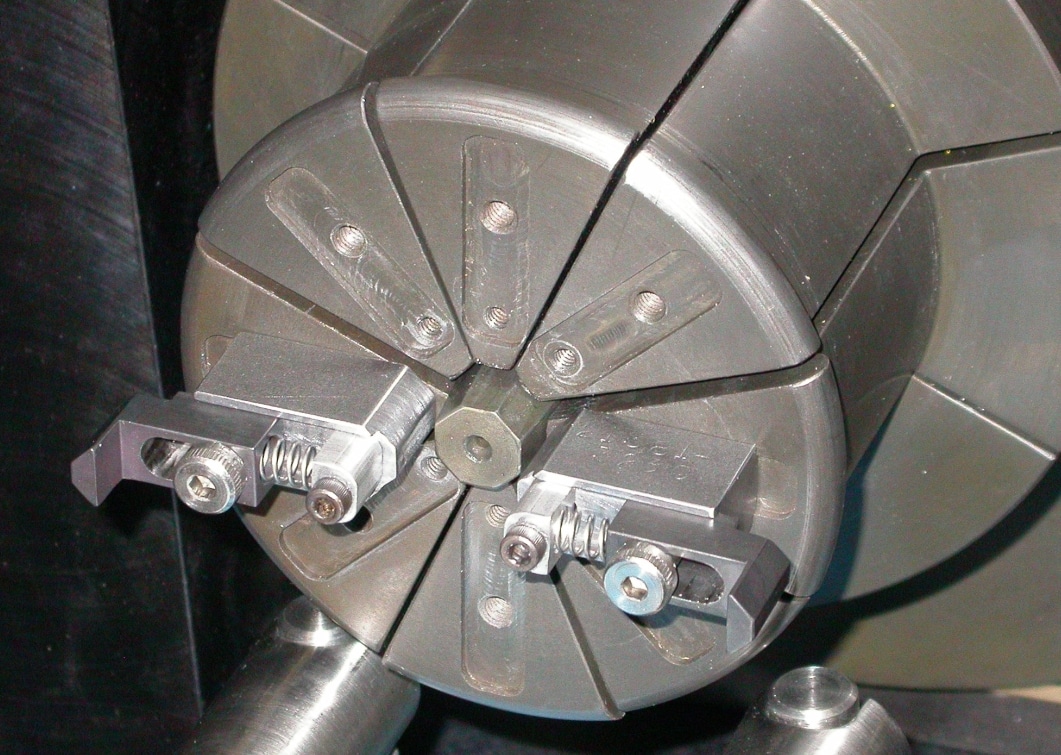How to Expand the End of a Tube in Production
The Need Drives the Market
Throughout the world of tube end forming, one of the common types of end forms involves expanding the end of a tube. The reasons for expanding a tube’s end are many. For example, lawn & garden equipment often requires that one tube slips into the end of another for quick assembly. The process of slipping one end of a tube into another also applies to health care equipment, marine equipment, and swimming pool heat pump assemblies. The applications are endless but the processes used to expand a tube’s end are few. One process makes use of a segmented die set.
The Basics
A segmented die set consists of a set of segmented fingers and a tapered spear, see Figure 1. The process is simple. With a tube placed over the retracted segmented fingers, the tapered spear is forced into the segmented dies. As the taper spear travels further towards the segmented fingers, the segmented fingers expand outward and away from the spear thus expanding the inside diameter of a tube.
The final inside diameter of the tube is determined by the distance the spear travels. Based on the geometry shown in Figure 1, a small change in position of the spear produces an even smaller radial movement of the segmented fingers. The ratio of the spear travel to the radial movement of the segmented fingers contributes to the mechanical advantage of the systems. For example, with the geometry shown in Figure 1, a small horizontal force exerted on the spear is magnified in a direction perpendicular to the motion of the spear. Therefore, as the spear travels to the left in Figure 1, the segmented fingers are forced outward applying a much larger radial force on the inside of the tube.
Figure 2 shows a thin wall Ø5/8 titanium tube expended just enough to accept another Ø5/8 tube.
Once assembled, the two titanium tubes will be welded together for a seal tight connection. Figure 3 shows an internal view of a 4” OD tube after it has been expanded.
For critical applications, the segmented lines on the inside of an expanded tube can be a concern. In this case, the part can be expanded once, rotated a small amount, and then expanded a second time all within a 2 to 3 second cycle time. This double expanding process tends to smooth out any unwanted lines on the inside of the expanded tube.
Square Ends, Hex Ends, and More Ends
The process of using segmented fingers is not limited to round tubes. Square, hex, and even elliptical profiles are among just a few of the many shapes easily produced by segmented fingers. Take for example Figure 4. Figure 4 shows a square segmented die set.
In this example, the segmented fingers are used to bump up (expand) the end of a square tube. It would not be difficult for the same die set to expand the end of a round tube making the round end square.
Beading
Depending on the desired bead required, a set of segmented fingers is able to impart a bead on the end of a tube. With the segmented fingers alone, the bead profile may or may not be adequate for the application. See Figure 5. Figure 5 shows a set of segmented fingers that are used to form a bead on the end of a tube.
With the addition of an external die set, the features of the bead can be more pronounced as the segmented fingers expand into an external die set.
Advantages
Using a set of segmented fingers to expand a tube’s end doesn’t require clamping the tube before expanding. This is often an advantage when the expanded end is very close to a bend. Another advantage is cycle time. With no clamping, the overall cycle time tends to be lower.

George Winton, P.E. designs and builds CNC tube fabrication equipment for Winton Machine in Suwanee, GA. He can be reached at gwinton@wintonmachine.com or 888.321.1499.
About the Machines We Build
All of our semi-rigid coax and tube fabrication machines at Winton are designed, manufactured, and tested in-house. We have a large line of standard products as well as the ability to engineer the best solution for our customer’s needs. Our experienced sales staff makes sure that our customers can justify their capital equipment investment by offering a solution that is exactly what they need in order to manufacture their parts. Please contact us today to discuss your project.


